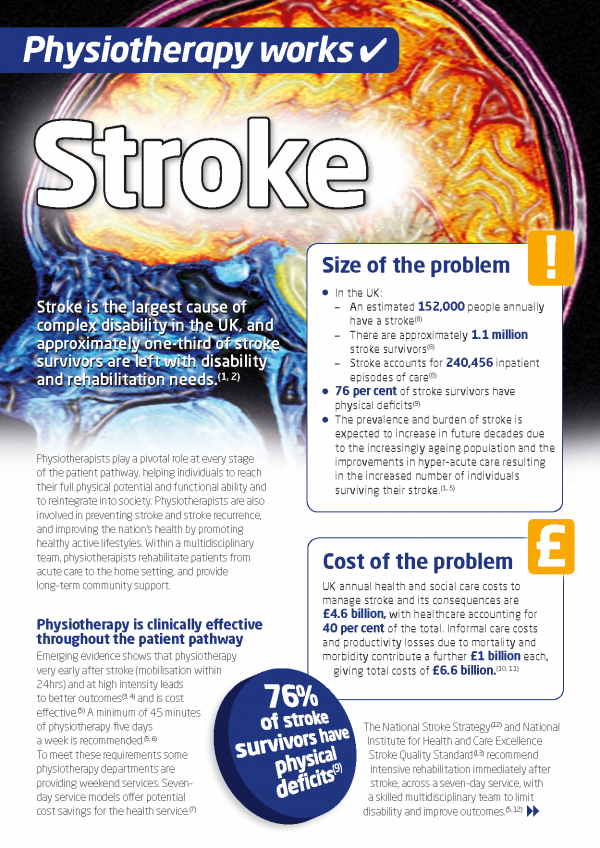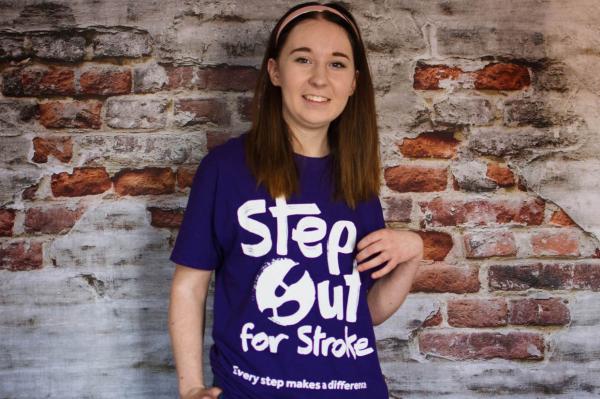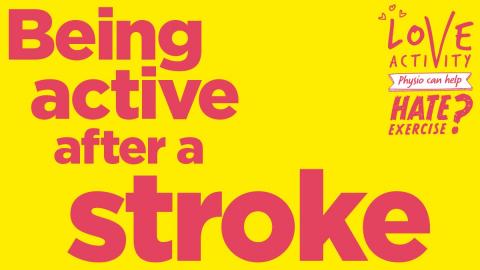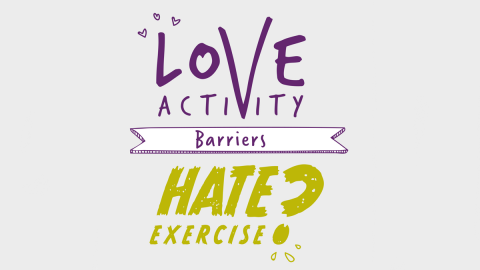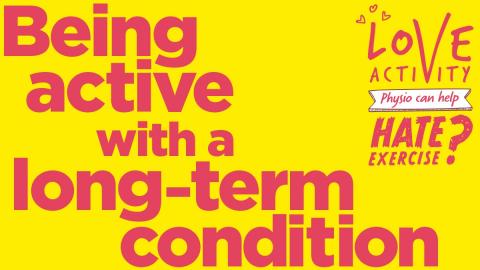A stroke may make it difficult for someone to move their facial muscles and limbs, to speak and swallow, or to understand what is happening around them. This summary explains how physiotherapy can help.
On this page:
What is a stroke?
Do you or someone you care for need treatment?
Find a Physio
A stroke is a sudden 'brain attack' that occurs when the blood flow to part of the brain is cut off. Usually, this is due to a blood clot.
Stroke is more common in men and in people over 55, although it can occur at any age. A family history may increase the risk, as can lifestyle factors such as diet, drinking alcohol, smoking and lack of exercise, but sometimes there is no obvious cause.
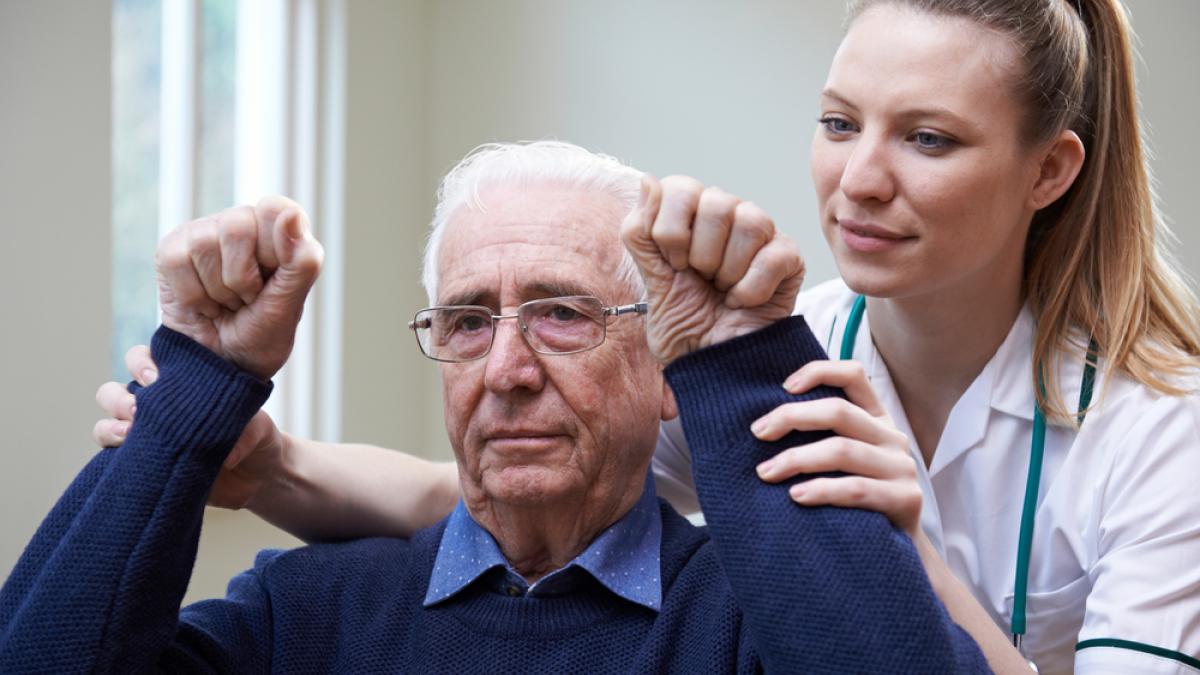
How can physiotherapy help stroke patients?
Stroke affects people in different ways. Physiotherapy is an important part of rehabilitation following stroke.
Physiotherapy can help restore loss of movement following a stroke. It can help you regain strength and movement, enabling you to be as independent as possible.
Effective treatment can help you recover as well as possible from your stroke.
Physiotherapists play a key role in your healthcare team while you are in hospital and afterwards. The healthcare team will provide you with a rehabilitation programme to help you become as mobile and as independent as possible. As part of your rehabilitation, your physio will provide treatment tailored to your specific needs.
Depending on the severity of the stroke, physiotherapy can help you with getting your muscle control and strength back.
A physio may also work with continence nurses to help you with bladder control, if that is a problem for you.
They will support you and those around you throughout your rehabilitation, to get you back to your everyday life as well as you are able.
Physiotherapy has been shown to work through clinical studies and research and is a treatment you can trust.
What to expect from physiotherapy following a stroke
If you can move between the bed and chair and can safely return home, Early supported discharge might be a suitable option. ESD teams should provide the same intensity of therapy and range of multidisciplinary skills available in hospital delivered in the persons own home.
Physiotherapy can help people who have weakness in their trunk or upper or lower limb, sensory disturbance or balance difficulties after stroke that have an effect on function. People with movement difficulties after stroke should be treated by physiotherapists who have the relevant skills and training in the diagnosis, assessment and management of movement in people with stroke.
After leaving hospital, most people should be followed up within 3-4 days by the specialist stroke rehabilitation team.
What will happen when I see a physiotherapist?
Your first session with a physio will include a detailed assessment. From this, the physio will create a personal rehabilitation programme for you that meets your needs. With support from the physio you will be encouraged to set your own goals, wherever possible. They may use a range of treatments to aid your recovery.
So that your physio can have a good look at how you move, they may need you to remove some clothes. It’s a good idea to have comfortable clothing and suitable underwear. Everything you tell the physiotherapist will be completely confidential.
Physios are the third largest health profession after doctors and nurses. They work in the NHS, in private practice, for charities and in the work-place, through occupational health schemes.
How can I help myself?
National charity the Stroke Association has information and services for people who have had a stroke, as well as their families and carers.
Top tips for stroke care
- Your recovery from a stroke will take time – try to be patient with yourself and pace your activities
- There may be changes in your emotions – don’t be afraid to ask for help to cope with feelings such as sorrow, frustration or anger
- Keep motivated and practice movements and activities as advised by your physio
- Ask about what services are available in your area
- Stroke support groups can provide social contact, as well as help to cope with your condition
- Stay healthy and enjoy the best quality of life you can.
Who to ask for help and advice
Your hospital team, GP, physiotherapist and pharmacist can all help.
Guidance and evidence for physiotherapy
- Physiotherapy Works (Stroke): Clinical evidence for health professionals
- SIGN (Scotland): Information on NHS treatment
Links and further information
- NHS Choices: Patient information on stroke
- Stroke Association: UK charity which funds research and supports patients and families. Helpline: 0303 3033 100
Disclaimer
The content on this page is provided for general information purposes only and is not meant to replace a physiotherapy or medical consultation. The CSP is not responsible for the content of any external sites, nor should selection be seen as an endorsement of them.




































